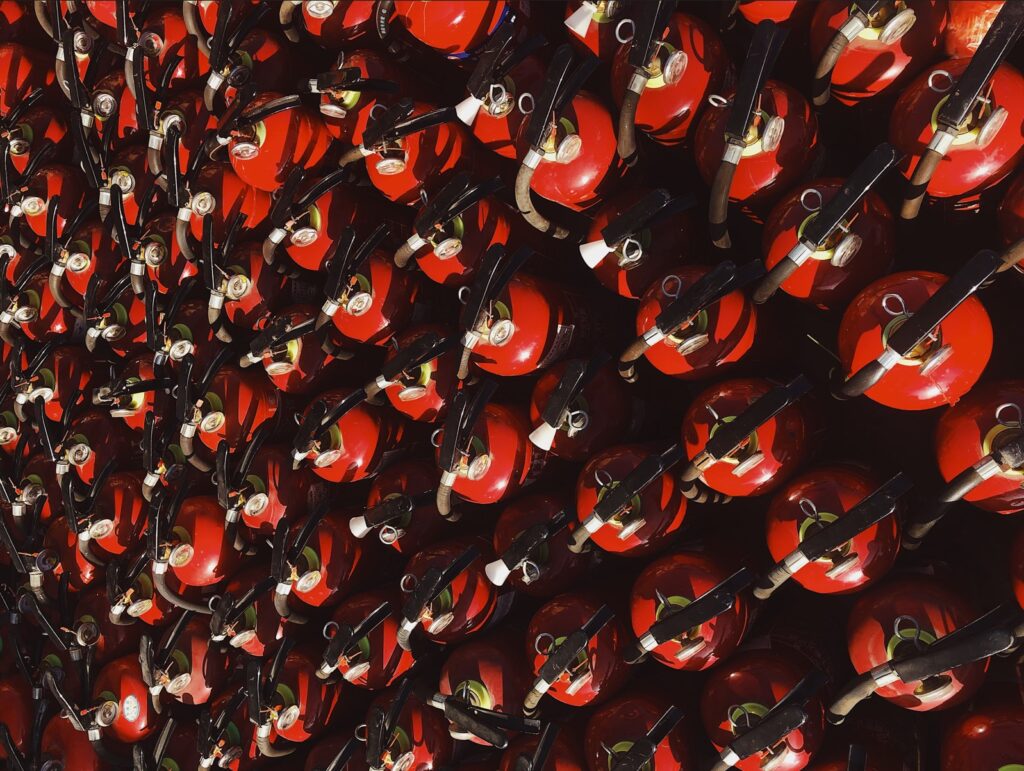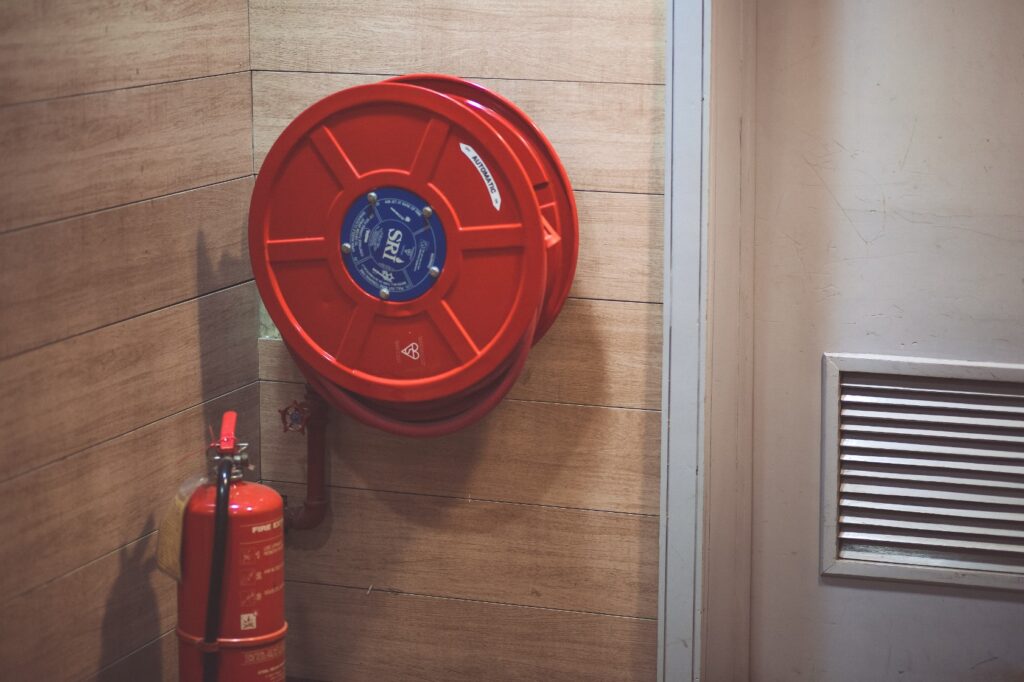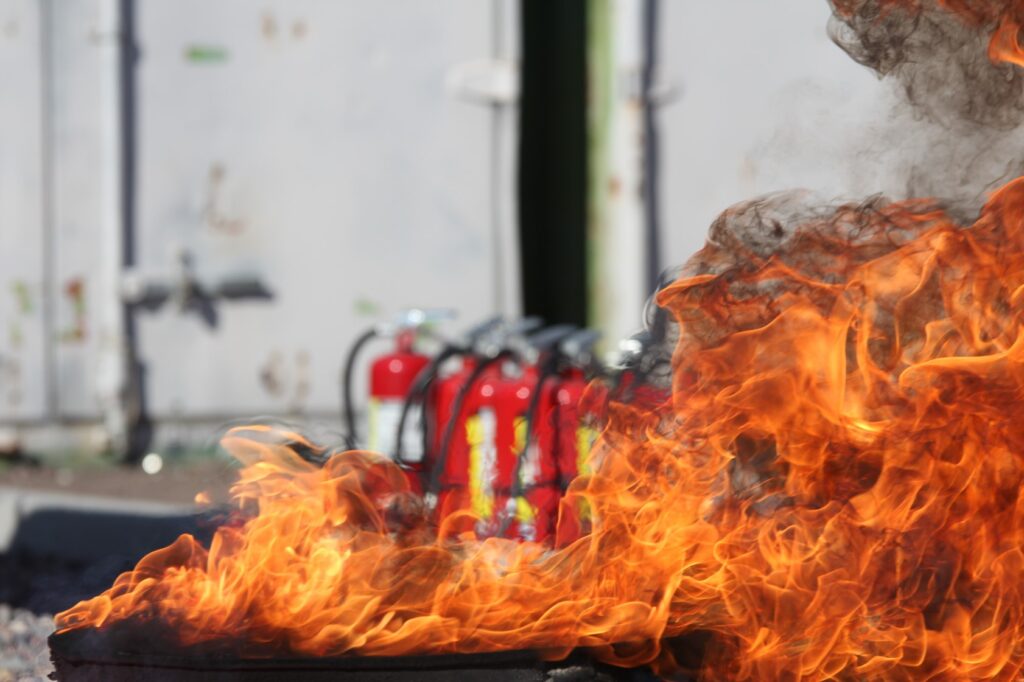
As a homeowner, fire protection is incredibly important. Every building should have proper fire safety measures in place and one of the most common ways to do so is to have fire extinguishers installed and properly maintained.
Fire extinguisher needs to be inspected regularly and replaced every 12 years or when they become expired. If you’re not sure when it’s time to replace your fire extinguishers or if you need to dispose of expired ones, the experts at a local fire protection company can provide you with the answers to your questions how to dispose of fire extinguisher.
How to dispose of fire extinguishers
- When it comes to disposing of expired fire extinguisher, you can ask your local fire safety establishment if they offer a drop-off service for expired fire quenchers: many companies get fire extinguishers for disposal, but you may also be able to find a hazardous waste disposal facility that accepts them as well.
- If you choose to drop off your expired fire extinguishers, make sure that you check with the facility first to ensure that they get fire extinguishers and to ask any other questions you might have.
- If you plan to relocate your extinguishers, it’s important to assess the integrity of the steel canister before you buy a new one. The head of it needs to be in good condition to make it apparent that the extinguisher is in good working order and that it won’t be damaged from mishandling or mishandling of the high pressure during installation.
- When you’re ready to relocate portable fire extinguishers, it’s important to choose a fire safety establishment that is based in NJ and offers a high level of professionalism and integrity. You’ll want to make sure that the company is licensed and insured, so you can have full confidence that your extinguisher will be installed in the right places and that it will be replaced at the right time. Ask the company about the type of extinguisher they recommend and ask if they accept drop-off of expired fire extinguishers.
- If you have any other questions about fire protection or need to know what to do with expired fire extinguishers, the experts at your local fire protection company can provide you with the answers to your questions.
- Knowing how to properly care for and dispose of expired fire extinguishers can help you keep your family and building safe.

Advices on safety
Are you looking for advice on fire safety, hazardous waste disposal, and replacing and disposing of your fire extinguishers? Then look no further! We have the answers to all of your questions.
- First, let’s talk about fire safety and how to protect your household from potential fires. Quenchers are an important part of fire safety and are one of the most effective ways to fight fires before they cause too much damage.
- It’s important to replace your fire extinguishers every 12 years and to inspect them regularly. If you’re not sure when you need to relocate your quenchers, ask your fire protection establishment for guidance.
- When it comes to hazardous waste disposal, it’s important to take proper care when handling and disposing of hazardous materials.
- It’s important to ask questions and assess the situation, to ensure that the hazardous waste is disposed of correctly and in the right places. The integrity of the materials is also essential, so mishandling them could lead to damage.
- If you need to drop off a disposable quencher or a steel can, make sure to ask about dropping them off at the local hazardous waste disposal facility. Also ask if they accept fire extinguishers that need to be replaced or have expired, so you can assess the situation and decide if you need to recharge or get rid of it.
- Finally, when you work with a fire protection establishment, make sure to ask about their professionalism and integrity-based on what they find during their inspection. It’s important to ensure that the company is experienced and knowledgeable, so that they can provide you the inspection with the best fire protection solutions. And now in more detail.
Duration of fire extinguisher and time for its relocation
Fire extinguisher is a vital part of safety in any home or business. It’s important to make sure yours is up to date and in good condition. In this blog, we’ll answer all your questions about quencher, including how to tell if it’s time to relocate one, how to safely dispose of an expired or old fire extinguisher, and when to call a local recycling facility or fire department to ask for help.

Expired quencher can be dangerous
- It should not be used, so if you have an expired fire extinguisher, it’s time to relocate or recharge it. The lifespan of a portable fire extinguisher varies depending on the type, but many last between 3-5 years. To determine if your extinguisher is expired, look for the expiration date on the label or the cylinder. If it’s been more than five years since the extinguisher was last inspected, it’s time to relocate it.
- If you have an quencher that’s in good condition and has not expired, you may be able to recharge it and extend its life. To determine if your extinguishing is rechargeable, look for the manufacturer’s instructions on the label or the cylinder. If you’re unsure, call a regional fire extinguisher service provider. They can tell you the type of it and whether or not it can be recharged.
If you have an empty fire extinguisher
Empty fire extinguishers should not be thrown away in the trash, they can be recycled, but fire extinguisher disposal must be properly.
- First, remove the head of the quencher and separate the shell from the squeeze lever.
- Then, place the head and shell in a plastic bag and drop it off at your local recycling plant or hazardous materials facility.
An expired or damaged quencher
You should not attempt to recharge it. Instead, fire extinguisher disposal should proper. Take the canister to a local hazardous waste facility or call your fire department to ask if they can take it. If they accept the extinguisher, they will dispose of it safely and professionally.
Before you get rid of any quencher, it’s important to make sure the pressure is released. To do this, pressurize it by squeezing the lever several times. When the press is released, you can safely dispose of the canister.
If you’re unsure about the condition of your extinguisher or how to safely dispose of it, call a regional fire extinguisher service provider. They can inspect the quencher, determine the type, and advise you on the best course of action. In some cases, they may be able to recharge or replace your extinguisher based on what they find.
Make sure you choose one that meets the proper safety standards
When it’s time to relocate your quencher, make sure you choose one that meets the proper safety standards and is up-to-date. It’s also important to have your extinguisher inspected and hydrostatically tested on a regular basis to ensure it is in proper working condition.
Remember, quencher is dangerous if mishandled, so it’s important to take the time and communicate with the professionals to make sure it is disposed of properly and safely. By following these tips, you can ensure your quencher is kept in good working order and will be there when you need it.

Have you ever wondered how long a fire extinguisher will last?
Do you know when it’s time to relocate and what you should do with an expired or damaged quencher? As a homeowner, you need to know the answers to these questions to ensure that your home is safe from fire. The lifespan of portable fire extinguishers can vary depending on the type of extinguisher and its age. In general, most quenchers are designed to last for around 10 years. However, it’s important to remember that certain factors such as mishandling, lack of maintenance, and environmental factors can reduce the lifespan of your portable fire extinguisher.
Performing of regular checks and maintenance for fire extinguisher to be in top condition.
Make sure to check the expiration date and make sure the pressure gauge reads in the green zone. Additionally, make sure to squeeze the lever of your quencher to make sure it’s still pressurized. It’s also important to make sure that the quencher head is properly attached to the shell of the canister.
If your fire extinguisher is expired or damaged
You can’t simply throw it away in the trash. Instead, you should check with your local fire department to ask about proper disposal methods. They may be able to tell you if they accept old or used quenchers for disposal. Alternatively, you can take it to a local hazardous materials recycling facility.
If your fire extinguisher is still in working condition
If it is so, you may be able to have it recharged or drop offs safely. The best option is to take your quencher to a certified technician who can perform hydrostatic testing and other necessary tests to make sure your extinguisher is still in good working order. If your extinguisher passes the test, they may be able to recharge and certify it for several more years.
If your fire extinguisher doesn’t pass the test
Your technician may recommend that you relocate it. In this case, you should take the canister to a local processing plant in order to properly dispose of it. Make sure to call ahead of time and communicate with the facility about the type of quencher you need to dispose of. Also, make sure to remove the extinguisher head before dropping it off. It’s also important to remember that quencher is made from high-pressure chemicals, and they can be dangerous if mishandled. For this reason, you should always call a local processing facility or your fire department to ask about proper disposal methods. They’ll be able to guide you on the best way to safely dispose of a fire quencher.
At Fire and Safety Services, we understand the importance of fire safety. We offer professional fire extinguisher services for homes, mobile homes, and businesses in Maryland and New Jersey. Our team of knowledgeable professionals is here to help you with all of your quencher needs. From inspecting and recharging to replacing and disposing, we can do it all. Contact us today to schedule fire extinguisher services for your home or business.
Conclusions
- It’s important to remember that fire quenchers have a lifespan and should be replaced or disposed of when they reach their expiration date.
- Make sure to check the expiration date and pressure gauge regularly and perform regular maintenance.
- The fire extinguisher may be placed in your regular trash for disposal.
- If your quencher is expired or damaged or it has broken pin, don’t simply throw it away in the trash. Instead, call your local fire department or take it to a recycling facility to make sure it’s disposed of properly.
- Lastly, if you’re unsure about how to handle it, or to schedule services, please contact a professional quencher service provider like Fire and Safety Services for help.

